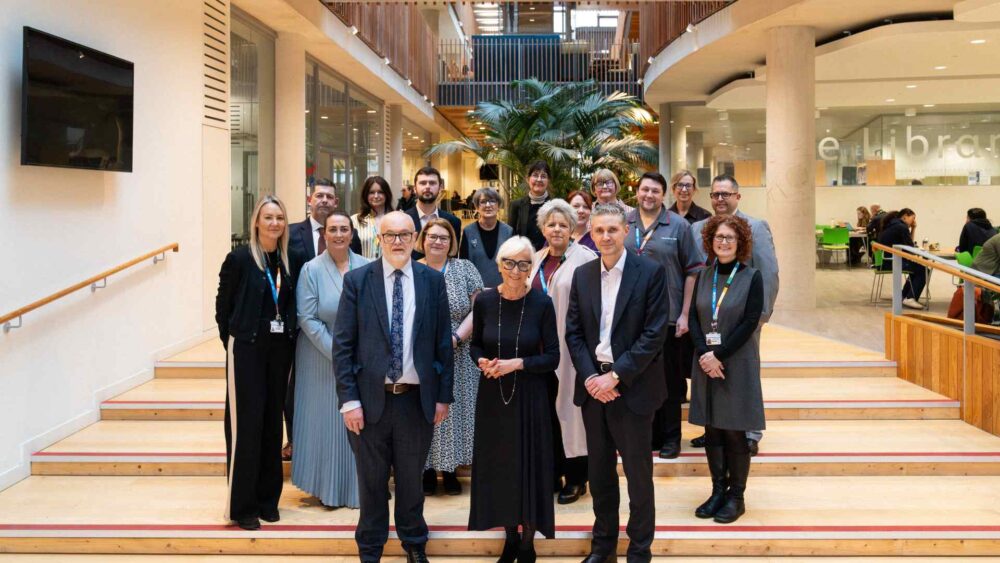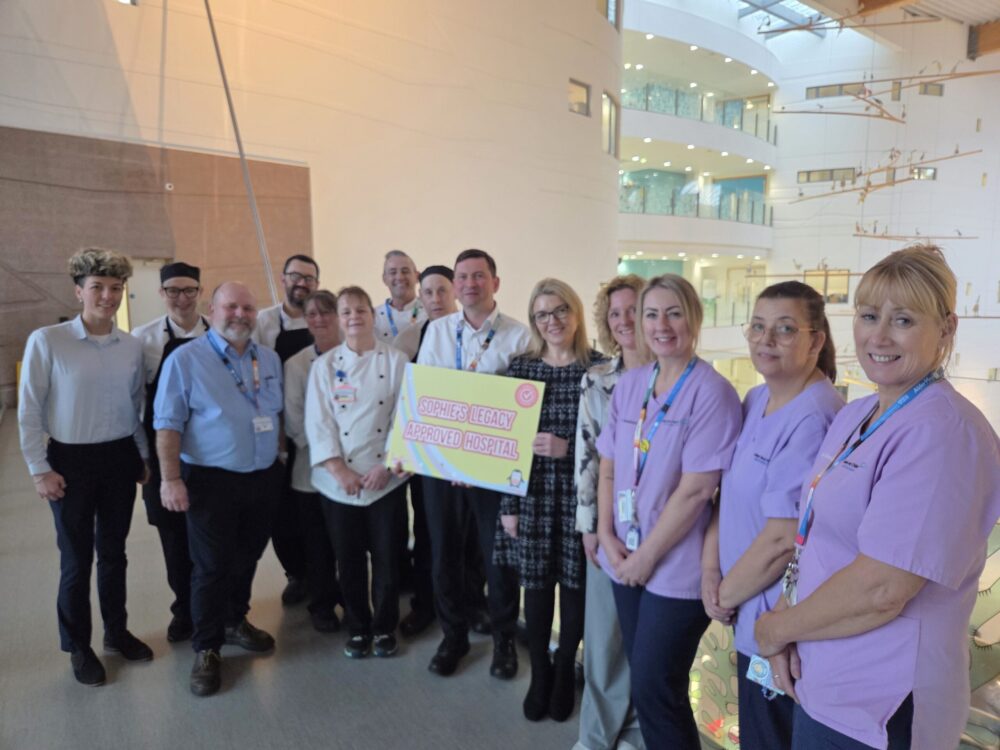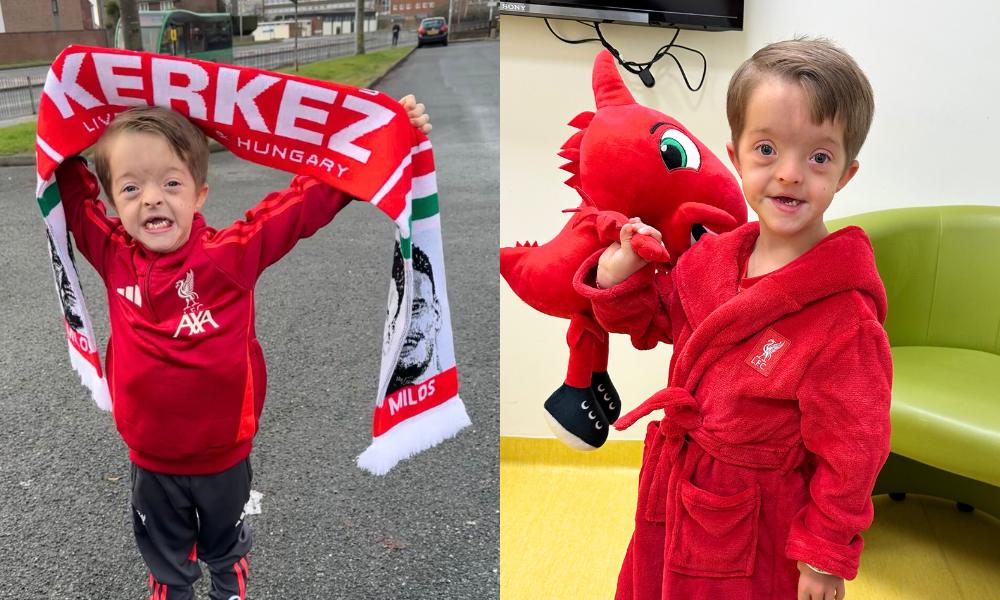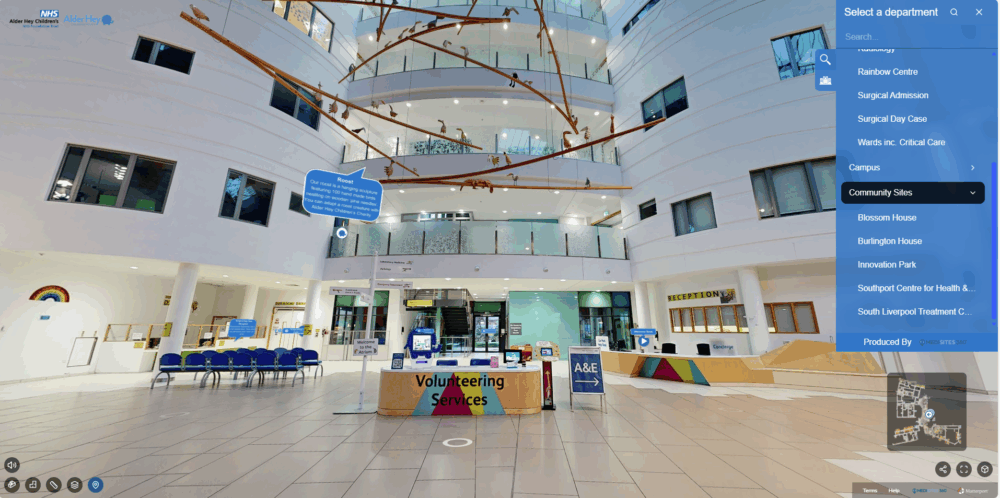
NHS
Royal Liverpool University Hospital’s specialist blood service praised by patients following premiere of film
2 years ago

Thrombotic Thrombocytopenic Purpura (TTP) is a rare blood disorder which causes blood clots to form in small blood vessels throughout the body, stopping blood flow to vital organs and triggering a medical emergency.
A specialist blood service at the Royal Liverpool University Hospital has been highly praised by patients who receive care for this life-threatening condition that impacts only six in every million people per year.
Johannes Mashavave, 55, a father of two from Middleton, Manchester, was diagnosed with TTP in 2022. His diagnosis came after passing out at the wheel of his car whilst driving his six-year-old daughter home from school.
He said: “I was due to pick Grace up from primary school at 3pm and had gone for what I thought would be a quick nap around 1pm, as I felt quite tired.
“I slept through my alarms until 5pm and had more than 20 missed calls from my wife, Odion, and the school. On getting out of bed I still felt drowsy.
“When I arrived at the school, Grace noticed something was off, she said that I was limping, looked confused and that I wasn’t talking properly. Obviously, at the time I thought there was nothing wrong with me, so we got into the car and headed home.
“Around 500 metres from my house was when I took a turn. A passer-by noticed the car revving unusually, came over and saw that I was unresponsive. They immediately rang for the emergency services.”
Patients with TTP will experience symptoms including fever, fatigue, headaches, confusion, rashes, bruises and stroke-like symptoms. The condition is fatal without treatment.
The Royal Liverpool University Hospital is the TTP Specialist Centre for North West England and is the second largest centre in the country, treating about 100 patients at any one time, with about 15 new referrals each year.
Following the incident, Johannes was blue lighted to Salford Royal Infirmary, where he was placed in an induced coma in critical care. Four days later, he was transferred to Liverpool as blood tests showed he needed specialist care.
He added: “I remember waking up to machines all around me and to two nurses saying, ‘welcome back Jo’, but I was thinking, welcome back from where?

“The care the team in Liverpool provides is exceptional. Along with support from my wife, they have given me the confidence to return to university in Preston, to complete my degree in Social Work, which I was studying before my diagnosis.
“Thanks to them I’m back to how I was and I’m confident this will continue with their support.”
Jane Harper, 59, who is a mental health nurse from Cumbria and mother of two, was also diagnosed with TTP after initially visiting her GP with bruising and blood in her urine.
Whilst at her GP appointment, where her symptoms indicated Jane may be suffering from kidney stones, an unexpected bruise appeared on Jane’s hand, which caused further concern. Jane was referred for a blood test at her local hospital and the results from that led to her being rushed in an ambulance to Liverpool.
Upon her arrival at the Royal, Jane suffered two seizures and was placed in an induced coma in critical care, spending a total of 33 days in hospital.
Jane said: “I underwent a plasma exchange whilst in critical care which saved my life. My seizures were caused by small blood clots in my brain because my blood did not have any ADAMTS13, an enzyme that everyone needs to stop blood clotting.
“TTP can impact anyone, it doesn’t matter how fit or old you are. When I attended my GP appointment, I looked healthy on the surface but beneath, there were serious complications.
“You always have that worry you could relapse and end back up in critical care where people can be nearing the end of their life. I’m constantly checking my body for bruises and fearing the worst if one appears.
“I attend a clinic every three months at the Royal where my blood levels are monitored. Thanks to their support, I am still working part-time and enjoy going to the gym. It is a blessing to have this service.”
In a bid to raise awareness of the condition, which even few healthcare professionals have heard of, the Royal Liverpool University Hospital commissioned a film to share stories of TTP patients across the North West.
The premiere of the film took place at the hospital, which is run by Liverpool University Hospitals NHS Foundation Trust, and was attended by many of the centre’s patients, their families, the UK TTP Patient Network Lead, Jo Mcintyre, and the High Sheriff of Liverpool, Dr Ruth Hussey.
Dr Tina Dutt, Consultant Haematologist and TTP Specialist Centre Lead at the Royal Liverpool University Hospital, said: “I cannot thank our patients enough for their honesty and bravery in sharing their stories in this film.
“We want this film to be a resource to empower others who may be diagnosed with TTP in the future, and to provide comfort and reassurance to patients who may currently be experiencing feelings of isolation and fear.
“The TTP team here are committed to providing the highest standards of care irrespective of the rarity of TTP and we will continue to work closely with our patients to improve both their physical and mental wellbeing. We want our patients to return to enjoying their lives despite having this diagnosis”.
Tracey I’anson, 49, is a mother of three who lives in Ingol, Preston. She became a grandmother shortly after her diagnosis and is one of the patients who features in the film and she is full of praise for staff at the Royal.
She said: “I cannot fault the team in Liverpool, whenever you need them, they are just a phone call away.
“Coming out of hospital after being in a critical condition and telling people about TTP, which no one had ever heard of it, I felt really isolated.
“Having a film like the one we shared today would have really helped me adjust to living life with TTP. It is a great initiative by the team at the Royal.
“I’m proud to have played a part in creating it and hope it helps others manage and overcome any problems they have.”









 Subscribe
Subscribe Follow Us
Follow Us Follow Us
Follow Us Follow Us
Follow Us Follow Us
Follow Us Follow Us
Follow Us











